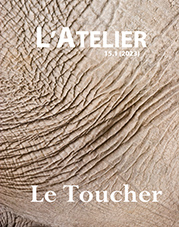Amputated Limbs and the Politics of Touch in Claude McKay’s Romance in Marseille
Résumé
This paper explores the poetics and politics of touch in Claude McKay’s recently recovered modernist novel Romance in Marseille (1929-1933, published in 2020). Through an emphasis on the protagonist Lafala’s “dancing legs”, the narrative posits strong connections between black identity and touch — both the sensuality of dancing and the ability to touch the African soil. Yet these connections are irrevocably severed by the traumatic experience the novel opens with: stowing away on a transatlantic liner, Lafala is discovered and locked up in the glacial latrines, in conditions evocative of the triangular trade, which causes him to lose his legs to frostbite. Adopting an intersectional viewpoint, I analyze the novel’s ambivalent reflection on how disability intersects with and transforms Lafala’s racial identity and class status in unexpected and paradoxically empowering ways, resulting in a “Pyrrhic victory” that becomes the catalyst of new, more heightened touching experiences (in the combined senses of haptics and affect).
Téléchargements
Publiée
Numéro
Rubrique
Licence
-
L’envoi spontané d’un article à la rédaction de L’Atelier implique l’autorisation de publication et la cession des droits dans les limites établies par la loi de propriété intellectuelle.
-
L’Atelier conserve les droits de reproduction des articles publiés, quelque soit le support : internet, CD ROM, réimpression, photocopie, etc.
-
L’auteur conserve le droit de publier ultérieurement son article déjà paru dans L’Atelier avec la seule obligation de mentionner le nom de la revue comme source de la première publication.


